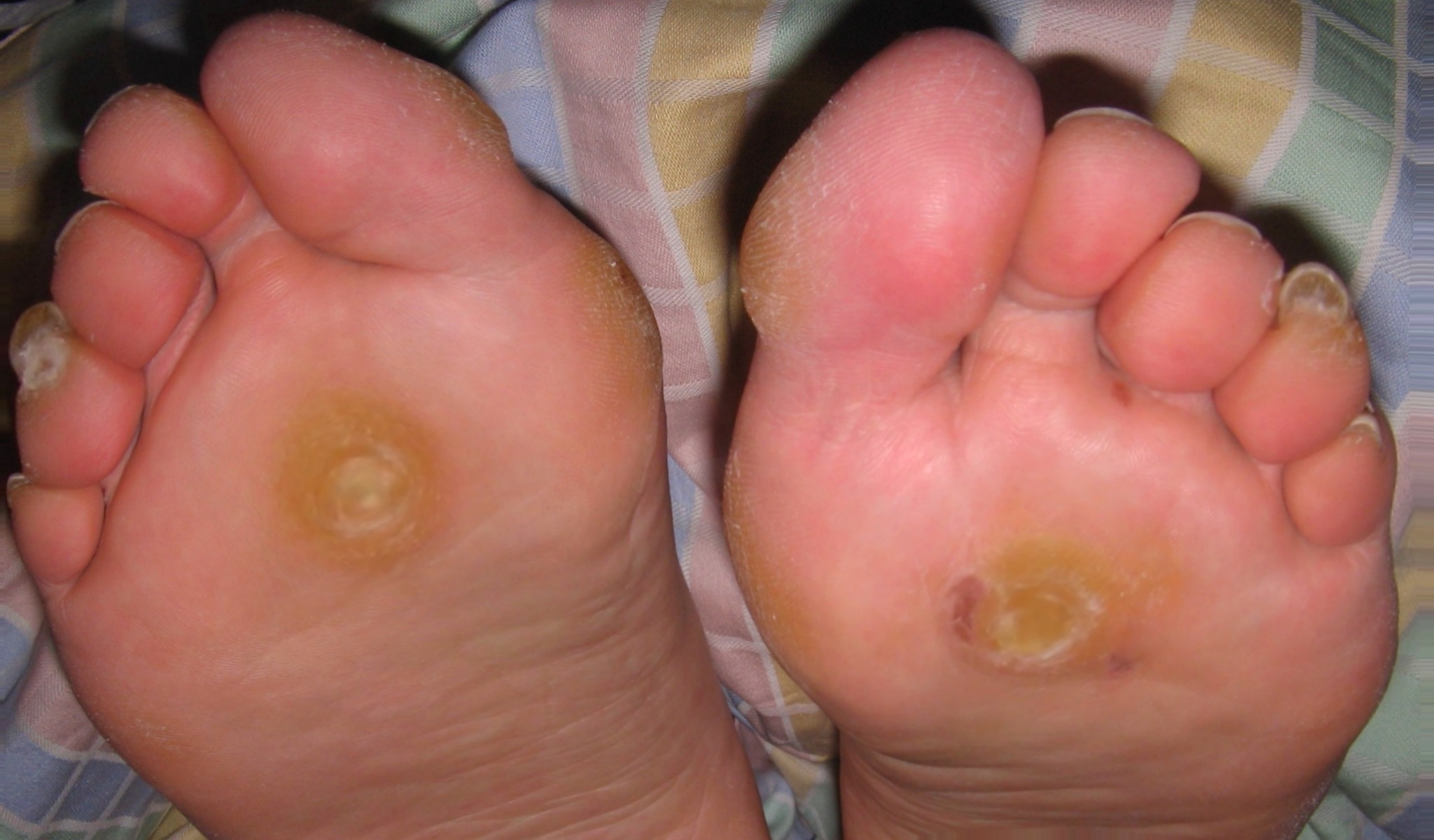Plantar warts, or foot warts, are skin growths on the soles of the feet caused by the human papillomavirus (HPV), often developing in areas exposed to pressure and friction. While generally harmless, they can cause discomfort, pain, and mobility issues if left untreated. Understanding the different types of foot warts and the effective treatment options helps individuals manage symptoms, prevent recurrence, and maintain foot health.
Causes of Foot Warts
The human papillomavirus (HPV) causes all plantar warts. This virus has many different types, and some of these types specifically target the thick skin on the bottom of your feet. The virus enters your skin through small cuts or weak spots, then begins to grow and form the wart.
You can contract this virus by walking barefoot in warm, wet areas such as swimming pools, locker rooms, or public showers. The virus spreads easily when your feet are damp or if you have small cuts or scrapes on your skin. People with weaker immune systems tend to get foot warts more often than others. Once the virus enters your foot, it can take several weeks or months for plantar warts to appear. During this time, the virus grows slowly under your skin and eventually creates the visible bump.
Common Types of Plantar Warts
Healthcare providers categorize plantar warts into two main categories based on their growth and appearance. These are single and mosaic foot warts. Single foot warts appear as one isolated growth on your foot. These warts start small but grow larger over time if left untreated. They often develop a thick, rough surface that resembles a callus.
Mosaic foot warts form when several small warts grow close together in a cluster. These clusters look like a patch of tiny warts concentrated in one area. These clustered foot warts are more difficult to treat than single warts because they have multiple roots growing deep into your skin.
Treatment Options
The most effective treatment options for foot warts help individuals manage symptoms, prevent recurrence, and maintain foot health. Here is a list of treatment options often used for plantar warts:
- Cryotherapy: Freezes the wart using liquid nitrogen, causing the infected tissue to die and fall off. This treatment requires several visits to complete.
- Laser Therapy: Utilizes focused light beams to destroy wart tissue. This option is commonly employed for warts that do not respond to other treatment methods.
- Acid Treatments: Administered by healthcare professionals, these treatments involve acids that are more potent than those found in over-the-counter products, effectively breaking down the wart tissue.
- Swift Microwave Therapy: A newer treatment method that uses controlled microwave energy to heat the wart tissue, prompting the immune system to recognize and destroy the virus. This procedure is quick and causes minimal discomfort.
Doctors often choose stronger treatments, like those listed above, for persistent or large warts.
When To See a Doctor
Most foot warts don’t require immediate medical attention. You should visit a healthcare provider if your heel wart or other foot warts cause significant pain when walking. Seek medical help if the warts spread to other areas of your foot or if they don’t improve after several months of home treatment.
Individuals with diabetes or circulation issues should consult a doctor before attempting any wart treatments. These conditions make foot injuries heal more slowly and increase the risk of complications. Children with multiple warts or warts that interfere with their daily activities should also receive professional treatment. A podiatrist has specialized tools and stronger medications that remove warts effectively than home remedies.
Get Expert Care for Plantar Warts
Plantar warts are common but treatable conditions that affect the bottom of your feet. While some warts disappear without treatment, others require medical intervention to remove them completely. Understanding the different types helps you choose appropriate treatment and know when to seek professional help. For persistent or painful plantar warts, schedule an appointment with a podiatrist for expert, safe, and effective solutions.









Leave a Reply